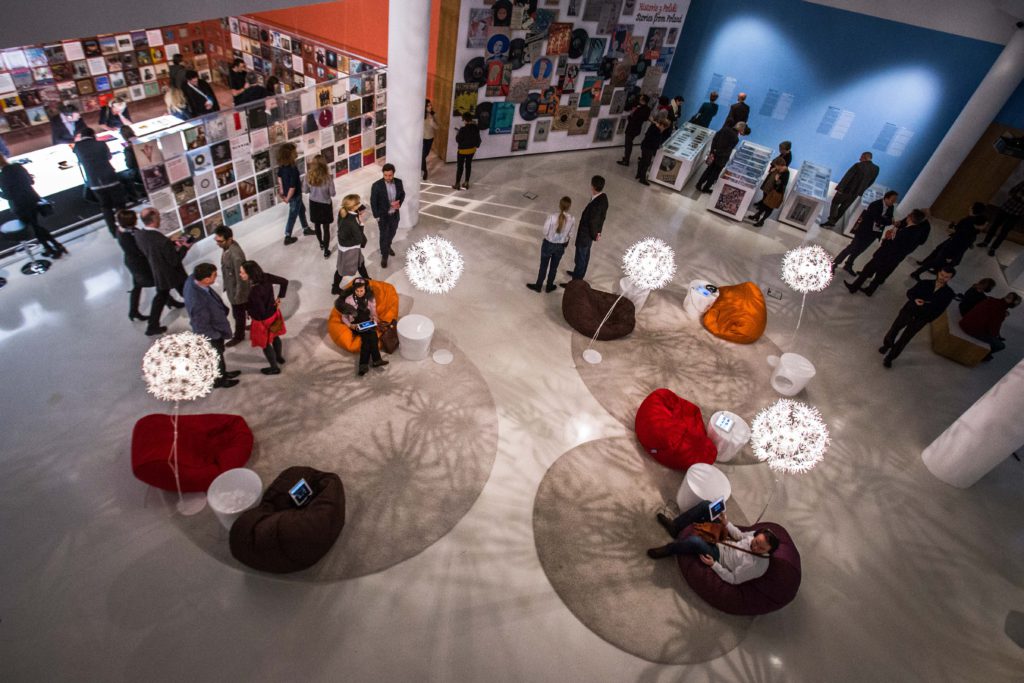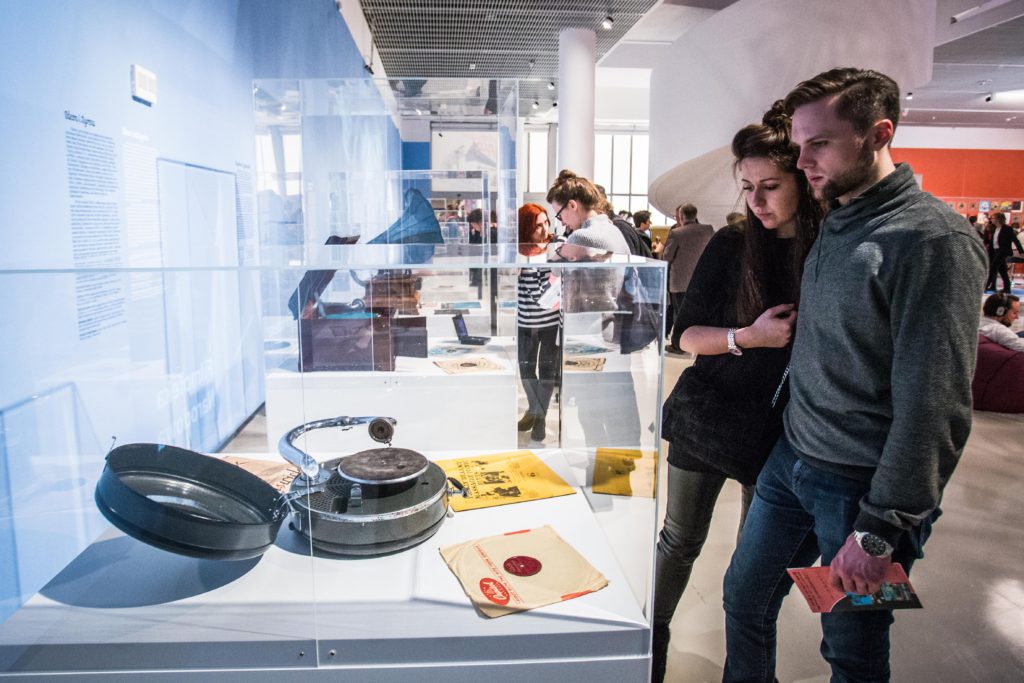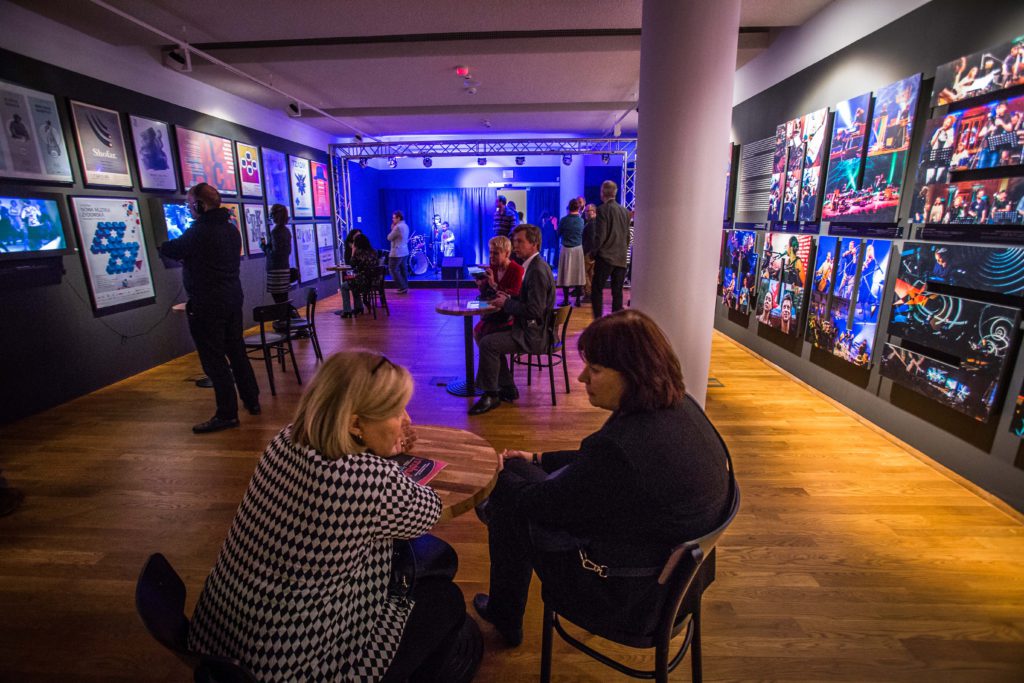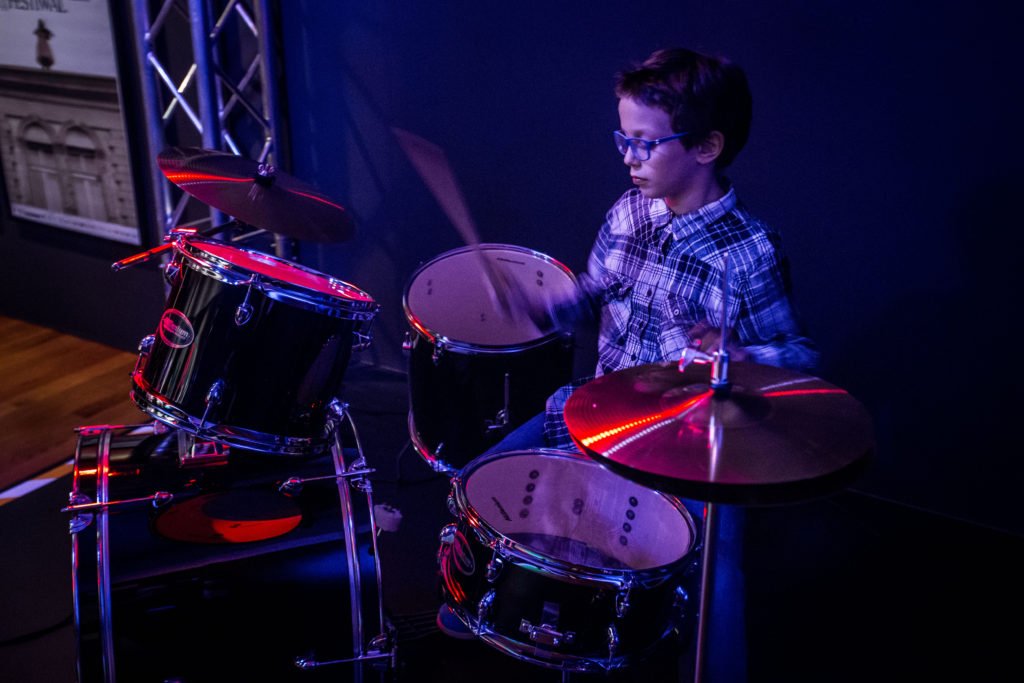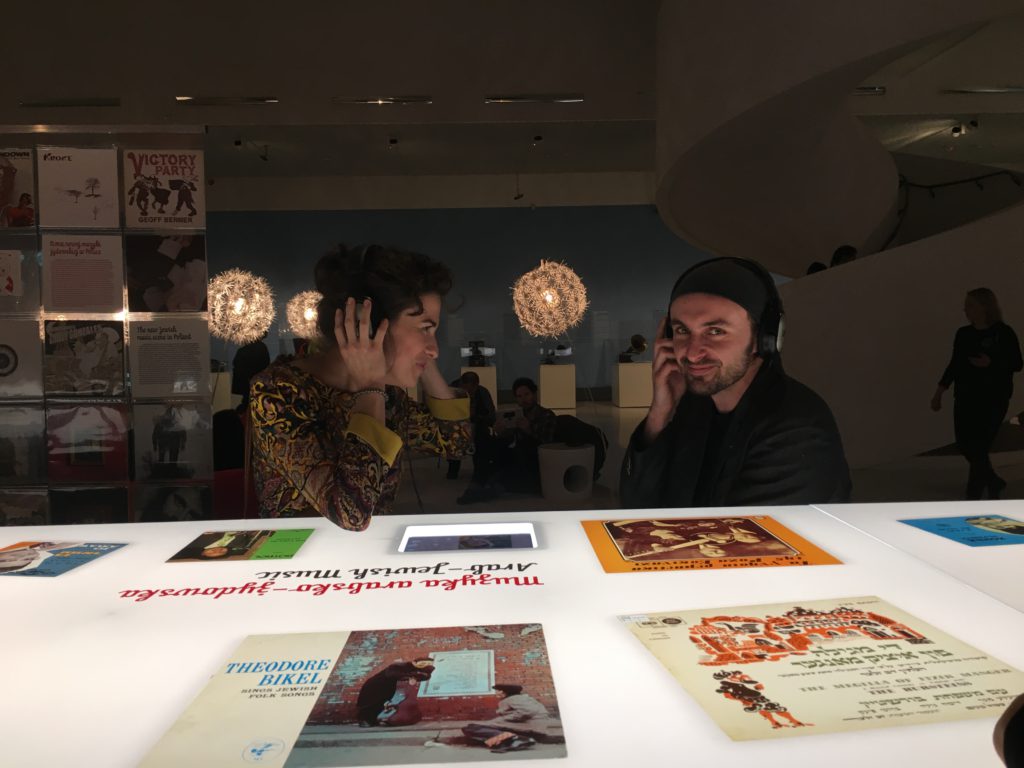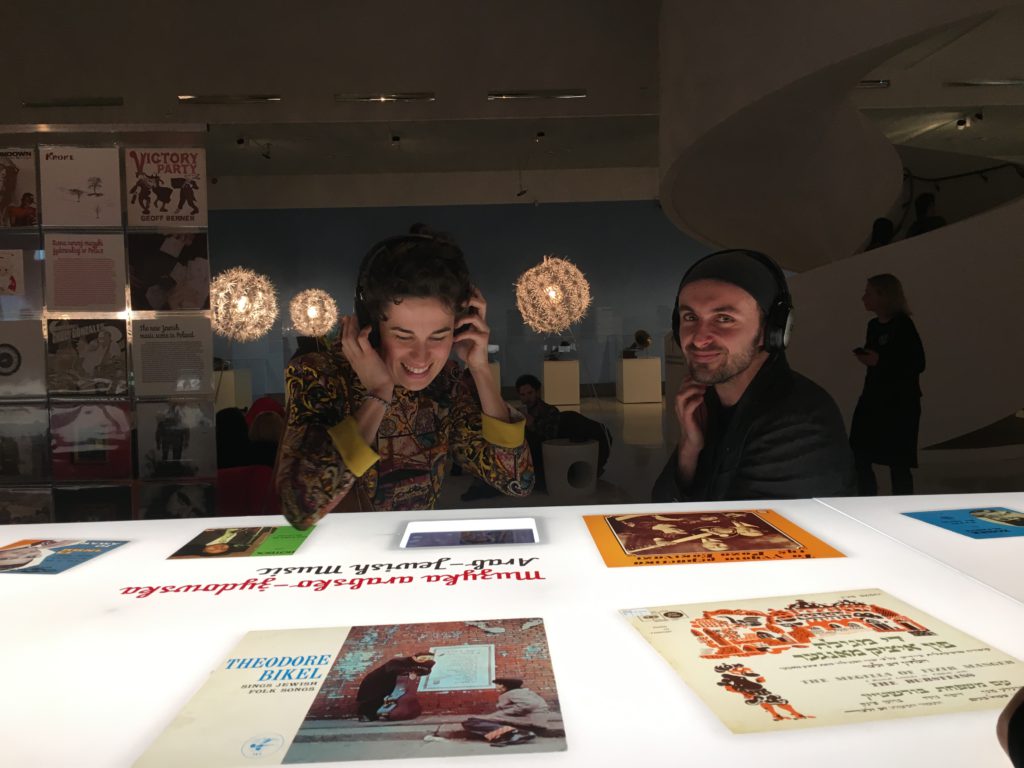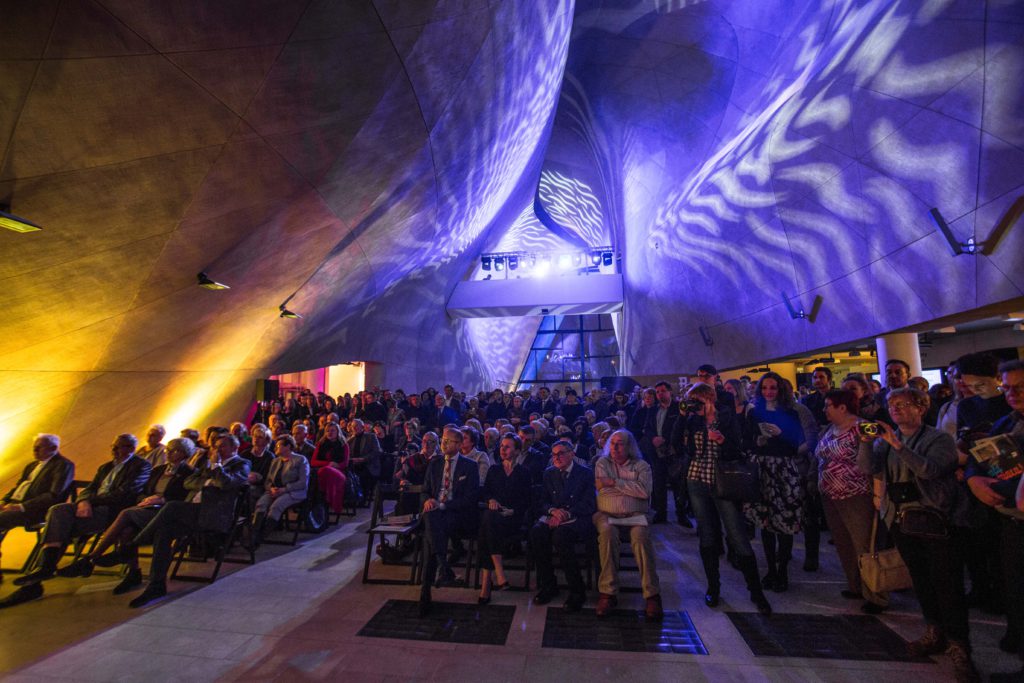
Last week our „Jewkbox“-exhibition opened in Warsaw. The Museum of the History of Polish Jews, POLIN, presents our exhibition for the next four months in the Polish capital. And the show became the talk of the town immediately.
Gazeta Wyborcza, the liberal newspaper devoted no less than 5 pages to it, the most popular television host of Polish breakfast TV came for an interview, national and local news were running around, and masses of people appeared in the giant lobby of the Museum to attend the opening last Thursday.
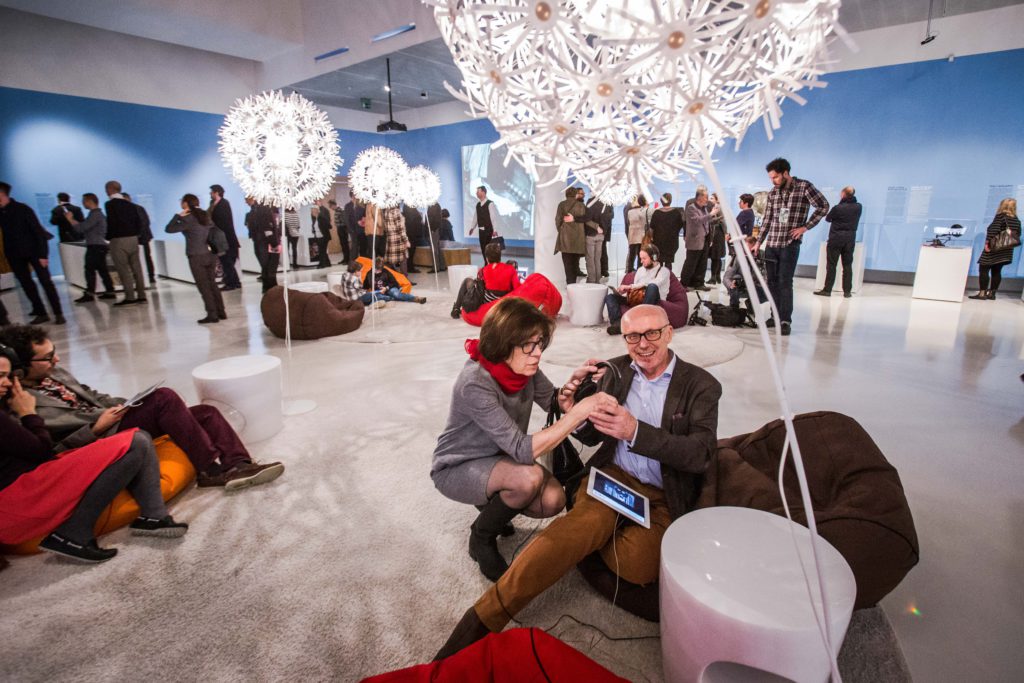
Why?
Here are a few assumptions: Jewkbox is presenting a global story from a Jewish angle and a Jewish story from a global perspective. It is presenting the diasporic state of mind and its productivity – focusing on Jewish experience and not on any fixed, substantial identity. And it makes – rather implicitly – a statement about cultural productivity in general. It locates cultural productivity on the margins of societies, nations, ethnic groups, religions… It tells stories about migrants and refugees, rebels against traditions, about cultural transfer and re-invention, about the emerging of the „popular“ from the peripheries. It tells about the simple fact, that exactly what very often is considered to be the expression of „the people“ mostly came from outsiders, from those fighting for recognition, from those who question the cultural traditions, from those who connected the particular with the universal, from those who had the greatest desire to be loved, instead of being oppressed, persecuted, or expulsed. The Warsaw Museum, Tamara Sztyma in particular, did a wonderful job in extending our show with a large presentation of Polish interwar musical culture, a portrait of a time when cultural influence from all over the world merged with Polish traditions, and Jewish artists where leading figures of show business all over the country. Poland after WWI had been back on the political map, but also on the map of world cultures.
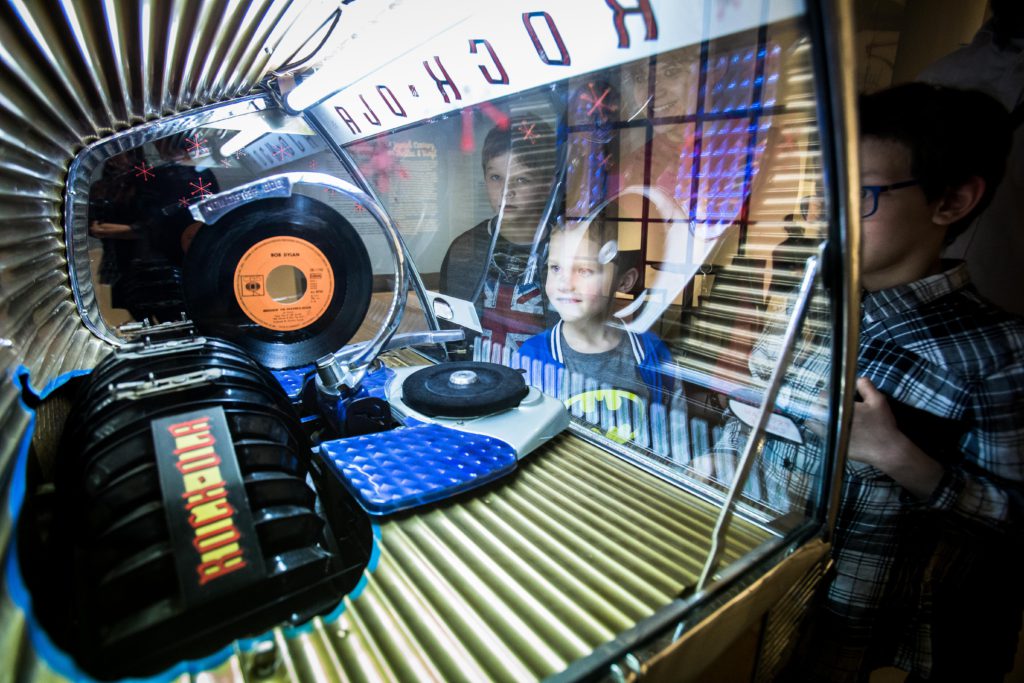
This Polish story is wonderfully presented in a new, richly illustrated and highly informative supplement catalog, produced for the Warsaw presentation of the show (bilingual in Polish and English). I can only recommend to go for it.
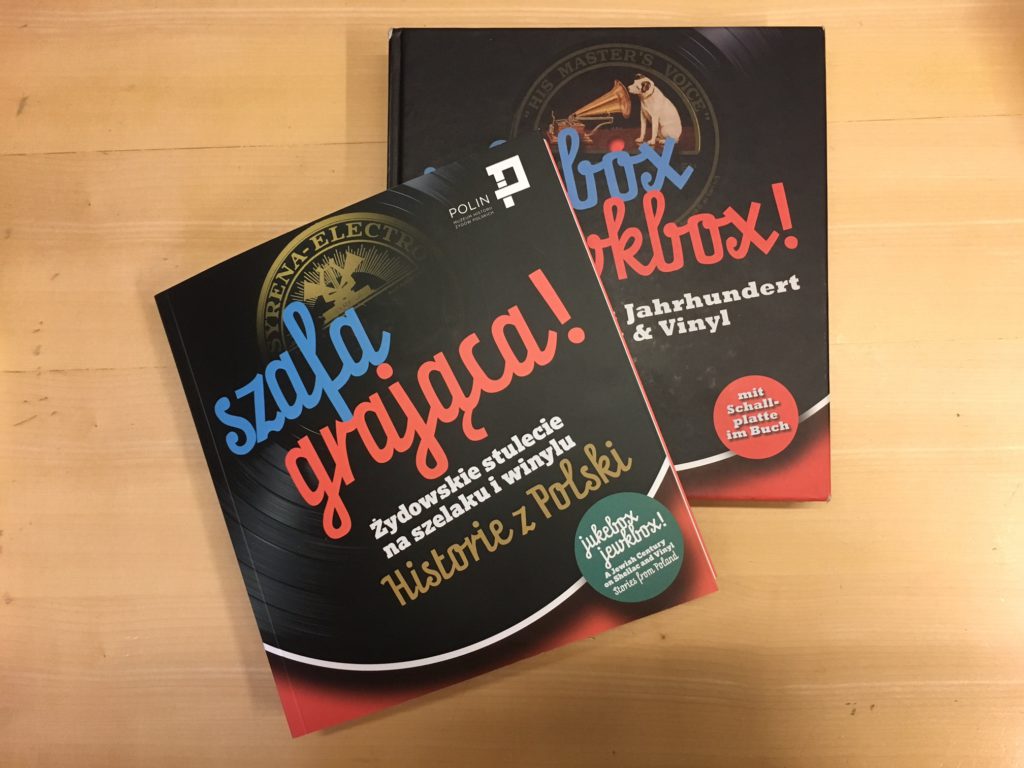
A music club, presenting new Jewish music in Poland today, was installed in a separate space only to be entered from the Jewkbox show. So, letting the visitors step on the stage of this installation from the back, it also turns the visitor into the performer, and the grand show into the backstage area of a music club. The drums are ready to start playing.
And in the middle of our show now there is not only the Jewtube lounge waiting for guests to relax, watch, and chat – there is also a world map of popular music, telling the story of global musical culture in 33 revolutions.
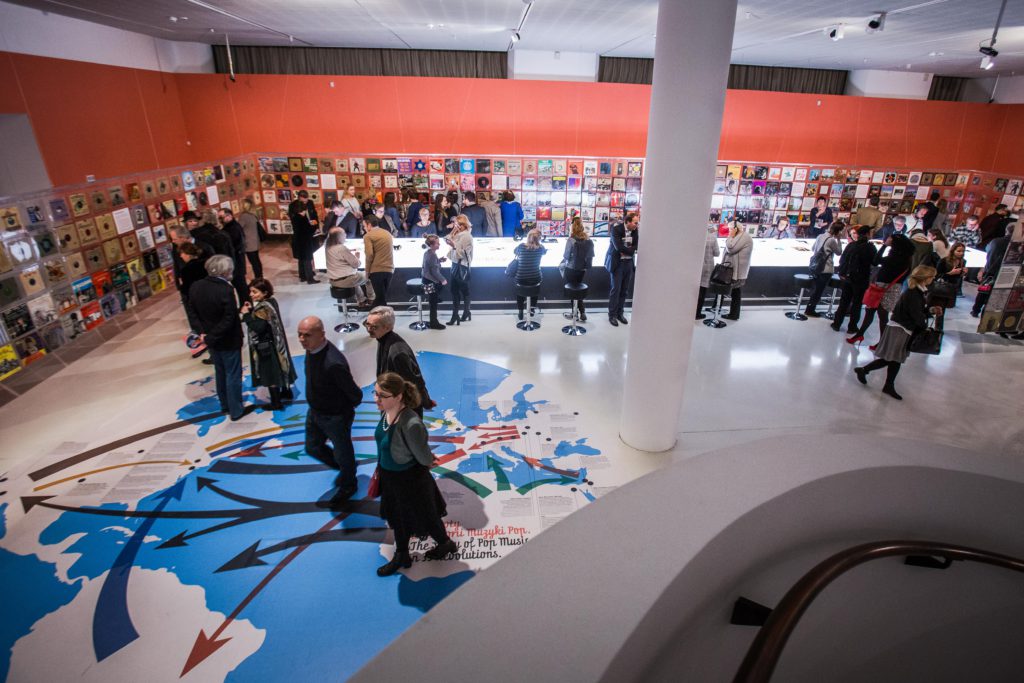
Being in Warsaw for a few days is always a very mixed experience. Personally for me its getting closer to a lost element of my own history. My grandfather once was among those emigrating from Polish Galicia to Germany, leaving behind family, traditions, religion and a narrow world that was doomed – only to end in Lemberg to be shot by the Nazis, together with a few thousand others, in the fall of 1941, while his daughter met my father on the shores of Tel Aviv… Much of Warsaw reminds me to this void.
Once almost completely wiped out by Nazi German forces the capital is far from being a particular charming metropolis. Its small old city was reconstructed from scratch – as an attempt to resurrect its heart from the ashes. But around that the monumental blocks and vast “boulevards” of Stalinist hybris, 1960s modernism and capitalistic endeavor after 1989 blend together in not the most favorable way. And between this structures wonderful people try to find their own path into a future nobody can tell. The presence though is rather gloomy.
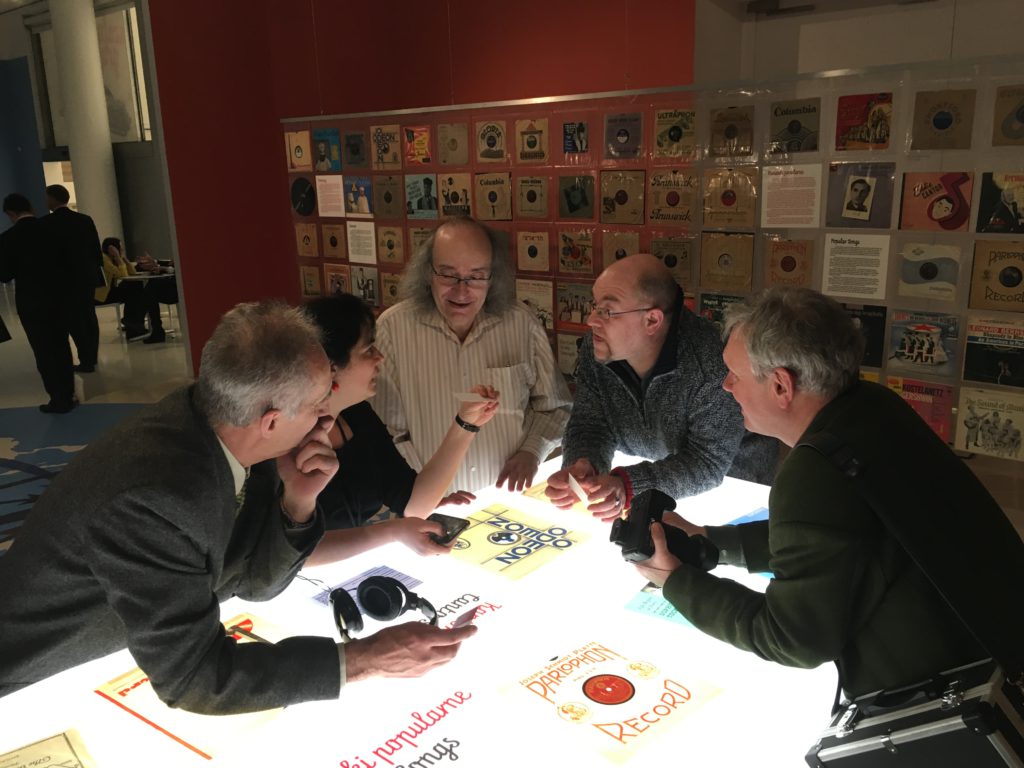
The right wing government tries to create an illusion called “Poland” that resides mainly on definitions what Poland is NOT: Poland is not Russia, Poland is not Germany, Poland is not the EU, Poland is no place for refugees, Poland is no place for immigrants, Poland is not the Jews, Poland is not an inclusive place, Poland is … Poland. And when it comes to define what Poland is – it comes to the heroic image of a Poland that always fights to be Poland, against the rest of the world and against all odds. So lets make Poland great again and think about what could make it a good place on earth later or never.
I actually did not meet anybody in Warsaw who shares these xenophobic views. The new government though found enough voters elsewhere. So most people I know are hovering between depression and a good old Polish sentiment: the evil powers come and go, and we stay – even if the evil powers are elected from our own midst. Tamara’s opening speech was a clear expression of resistance against the prevailing nationalism and isolation. And it was obvious how much it moved herself and the crowd listening to this.
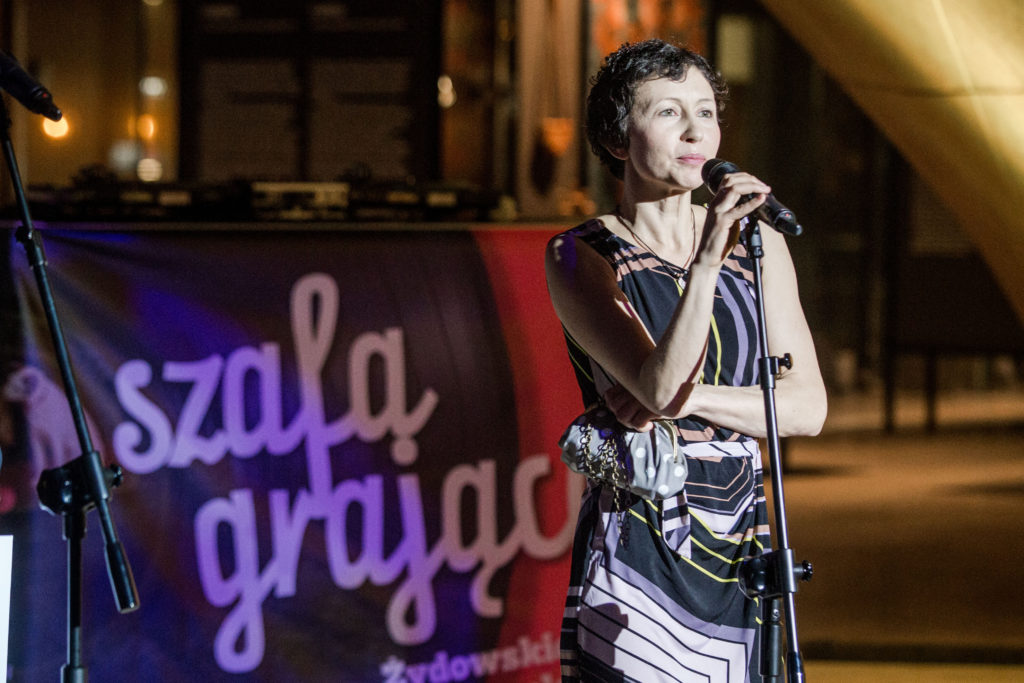
While the government of the country starts to censor the cultural production, while the ministry is firing critical theater directors and heads of cultural institutions, promotes mediocrity and nationalism in the arts, while the government threatens the freedom of press and media and step by step is killing the independent role of justice, the Jewish Museum in Warsaw seems to be an island in the storm. It seems obvious: the government does not dare (yet?) to open up conflict about this so much internationally observed and connected institution. Do they save this prey for later? But it is unfair to return from this Warsaw journey with such depressing thoughts.
In the night of the opening – and in the light of its success – there is also the feeling that there is a civil society in Poland that fights back. “Poland is Not Yet Lost”. A country that chooses these lyrics for its national anthem indeed can go through a lot. And the claim of the museum is a simple one: that Poland was strong and “great” when it was inclusive, multicultural and open for others. When it was a crossroad of cultures and influences, when it did not seclude itself from the rest of the world. There is still something puzzling to me, something “patriotic” about the way this claim is brought forward in the permanent show of the museum. It still appeals to a “polish soul” that wants Poland to be great. But at least that’s a greatness that opens the arms and is not closing the doors. Lets for now take it for generosity. That’s the greatness of those who don’t confuse greediness and megalomania with “strength”. The evening in Warsaw was a celebration of generosity.
Poland is not lost at all. Or we are all lost. Jewkbox is offering a few ideas for possible revolutions. Take a nice vinyl record and play it. You will have even 33 (and a half to be precise) revolutions per minute.
